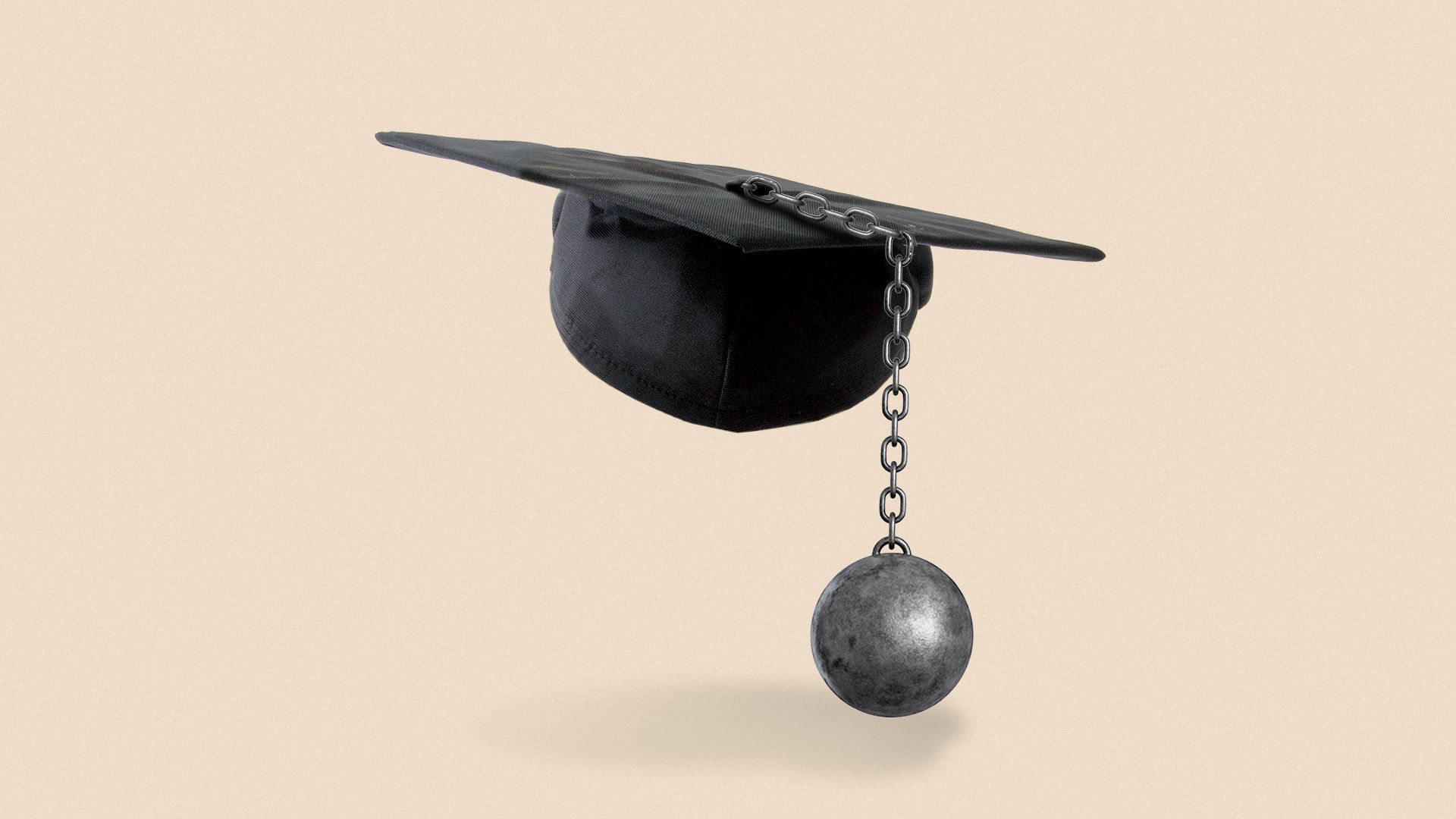Americans believe universities are heading in the "wrong direction"
Add Axios as your preferred source to
see more of our stories on Google.

Illustration: Aïda Amer/Axios
Americans are looking for a post-coronavirus overhaul at colleges and universities that would include reduced costs and better job placement for graduates, according to a report from think tank Populace.
Why it matters: Coronavirus threatens to upend how traditional four-year universities operate. Parents and students no longer feel like they can justify the large pricetags for a mostly online learning environment — no matter how prestigious the institution is.
Americans want universities and colleges to prioritize affordability, helping students to graduate debt-free and finding employment within nine months.
- A majority of respondents said they didn't care as much about a university being considered "elite," having a competitive sports program or an active social scene.
- Those surveyed said they'd prefer universities and colleges to adopt standard open enrollment practices for anyone with a high school diploma or GED.
- Respondents said they'd like schools to prioritize more practical learning experiences through internships, hands-on-workshops and lab-based classes.
- People are also more interested in flexibility so that students can choose non-degree pathways.
What they found: Of those surveyed, 67% believe American institutions put their own interests ahead of students or the greater good.
- Americans are split over whether or not they believe the college admissions process is fair, but are overall open to the admissions system evolving.
- Black Americans are less likely to believe the college admissions process is fair and are more willing to make SAT and ACT scores an optional part of admission than others.
- The report provided no data for other communities of color view higher on the admissions process or test scores.
Yes, but: There is still a general consensus as 60% of Americans believe "most others" view a college education as necessary to achieve the "American Dream."
- Only 33% believe a degree is needed to be part of the American middle class, and 27% believe a college degree isn't needed at all.
Methodology: Populace surveyed 2,750 U.S. residents from May 28-June 9, 2020, and was conducted alongside Gradient Metrics.
